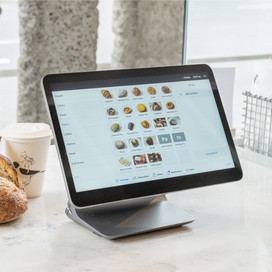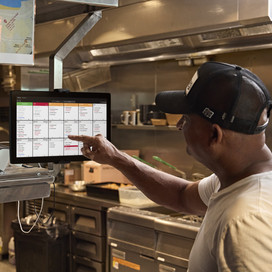Table of contents
Choosing the right location for your business is critical to its success, whether you want a brick and mortar store, or to be more agile and online. Let’s walk through the important factors to consider and the steps you need to take to find the best location for your business.
What to consider when choosing a physical location
Customers and competition
Your business needs to be easily accessible to your target audience. If you are a retailer, you may want to be in a location that attracts more foot traffic. If you are a B2B company, you may need to be in a location that is convenient for your clients to reach and has accessibility like on-site parking.
Your business should also be located in an area where there is low competition, or where you may have a competitive advantage over other players. For example, if you are opening a new coffee shop, it may be difficult to compete in an area that already has many well-established cafes.
Cost and infrastructure
The cost of leasing or buying a commercial property can vary significantly depending on location. Choosing an industrial area may help you save money on rent or purchase costs, but may not have the most organic foot traffic. Or perhaps the high cost of a main street location could be justified by the accessibility to your customers and exposure to new ones.
It’s also important to consider that depending on the type of business you have, you may require specific infrastructure such as high-speed internet and transportation features, like a loading dock, or other utilities.
Image and branding
Your business location can impact your brand image. Choosing a location that aligns with your brand values can help you attract the right customers. Similarly, it will also help you attract the right employees – if you are in an industry that requires specialised skills, it is important to choose a location that has a talent pool with the necessary qualifications and people with the values and attitude that reflects your brand.
Community
An often neglected consideration when choosing a business location is the surrounding community. Operating a business is hard work and it’s much more enjoyable when you can establish relationships with those around you and stay in touch with what’s happening more broadly in the market.
Tip: It’s also cheaper and more efficient to trade goods and services with other nearby businesses, and even share equipment or other resources.
Am I better off selling online only?
Both online and physical business locations have their advantages and disadvantages. Online businesses are accessible to a global market, with lower overhead costs compared to physical businesses. They can also operate 24/7, providing customers with the convenience of shopping at any time.
When considering the costs of operating online, research all the overheads you require, like web hosting and domain costs, marketing, POS and accounting software subscriptions, as well as warehousing costs.
On the other hand, businesses with a physical presence can provide a different, personalised and immersive customer experience, allowing customers to touch, feel, and try products before purchasing. They also have the advantage of being able to create a stronger local presence and brand recognition within a local community by having a physical space to visit.
Some businesses have a blended, omnichannel approach, with both physical store locations and an online presence.
Tip: Conduct a cost-benefit analysis of physical location vs online to determine the best approach for you.
How do I find a location for my business?
So you’ve decided you want a physical location. Here’s a step-by-step guide to finding the location that best suits your needs.
-
Know your ideal customer demographic and understand where they are located. Consider factors such as age, income, education and lifestyle.
-
Ideally, identify the location of your competitors’ stores and understand their strengths and weaknesses. Look for areas where there is a high demand for your product or service, but low competition.
-
Look for areas with a strong and growing economy, low unemployment rates, and a stable business environment. Tip: You can consult local government statistics or research companies to find out more.
-
Ensure that the location is easily accessible to your target audience. Consider proximity to highways, public transportation, and parking facilities.
-
Consider the size, layout, and functionality of the space you need for your business. Ensure that the space meets your individual business requirements, such as storage, parking, and utilities.
-
Compare the cost of renting or buying the space, as well as taxes, utilities, and insurance. Look for a location that offers a good balance between affordability and value.
Seeking advice from a real estate agent, accountant, or business consultant can also help to provide valuable insights and help you make an informed decision about what locations might suit your business best.
This article is for informational purposes only and does not constitute professional advice. For specific advice applicable to your business, please contact a professional.
![]()












